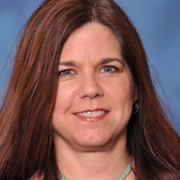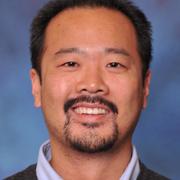Women Don’t Run?
PITTSBURGH—An interest in the gender gap between the representations of female candidates in U.S. elections compared to their male counterparts led two University of Pittsburgh professors to take the issue into the laboratory for three years of research.
Associate Professors of Political Science Kristin Kanthak and Jonathan Woon have published an article about the first phase of their research findings. “Women Don’t Run? Election Aversion and Candidate Entry” was published online Dec. 2 in the American Journal of Political Science.
Professors of Political Science Kristin Kanthak and Jonathan Woon have published an article about the first phase of their research findings. “Women Don’t Run? Election Aversion and Candidate Entry” was published online Dec. 2 in the American Journal of Political Science.
“Past research has shown that women seem to be under confident in their ability to hold office,” Woon said. “We tried to examine scientifically what the factors were in the decision-making process.”
Kanthak and Woon enlisted 350 undergraduate Pitt students to participate in the laboratory experiments, which Kanthak said appeared to show women are more “election averse” than men.
Their research was conducted in three phases in the Pittsburgh Experimental Economics Lab in Posvar Hall, an interdisciplinary research center funded by the National Science Foundation and the Kenneth P. Dietrich School of Arts and Sciences. In the first phase, men and women were divided into random groups and given a task of adding up numbers. Participants solved as many addition problems as they wanted in a limited time and were paid for correct answers.
In the second phase, participants were asked if they were willing to represent the group. One volunteer was randomly selected, and everyone repeated the addition task. That time, participants earned 2/3 of their money through the addition problems answered correctly by their group leader and 1/3 through their own correctly answered questions. In that scenario, Kanthak and Woon said, men and women each volunteered to lead the group equally—about 80 percent of the time.
the second phase, participants were asked if they were willing to represent the group. One volunteer was randomly selected, and everyone repeated the addition task. That time, participants earned 2/3 of their money through the addition problems answered correctly by their group leader and 1/3 through their own correctly answered questions. In that scenario, Kanthak and Woon said, men and women each volunteered to lead the group equally—about 80 percent of the time.
In the final phase of the experiment, the participants were asked to declare whether they wanted to be elected as the leader. In that case, they were told to run a short campaign and give a message to the group. Kanthak and Woon found that when a competitive election process was introduced, 78 percent of men chose to run, but only 60 percent of women did.
Women will volunteer to lead a group, Kanthak said, but are less likely than men to go through an actual competition or election to do so.
“We wanted to control the incentives potential candidates face and place men and women with similar qualifications, ambitions, and political environments alongside one another and see if they still made the same decisions to put themselves out there as a candidate. We wanted to level the playing field, and we were able to do that by taking our questions into a lab environment,” Kanthak said.
“We also found that election aversion persists with variations in the electoral environment, disappearing only when campaigns are both costless and completely truthful.”
*
Kristin Kanthak, a native of Walnut, Calif., joined Pitt’s faculty in 2006. She is a coauthor of The Diversity Paradox: Political Parties, Legislatures, and the Organizational Foundations of Representation in America, which was named the recipient of the 2013 Alan Rosenthal Prize. The annual award is sponsored by the American Political Science Association’s Legislative Studies Section and is given to the best book or article on legislative studies that has potential value to legislative practitioners. Kanthak received her PhD in political science from the University of Iowa.
Jonathan Woon, a native of Foster City, Calif., joined Pitt’s faculty in 2007. In his research, he conducts experiments and applies mathematical models to political processes to examine how strategic and reputational incentives affect representation and legislative policymaking. His published work has contributed to understanding electoral accountability, how members of Congress introduce and position legislation, and how reputations of political parties evolve and affect congressional elections. Woon received his PhD in political economics from Stanford University.
###
12/12/14/klf/cm
Media Resources
Schools of the Health Sciences Media Relations
For more information about Pitt's schools of dental medicine, health and rehabilitation sciences, medicine, nursing, pharmacy, and public health, click here >
To locate stories from health science schools prior to 2013, visit the UPMC news archives »
Urgent Question?
University of Pittsburgh news reps are available to answer urgent media inquiries. Outside of regular business hours (Mon-Fri, 8:30 a.m.-5 p.m.), please email us at media@pitt.edu.
News reps for University of Pittsburgh Health Sciences schools can be reached outside of regular business hours through the paging operator at 1+412-647-2345.


